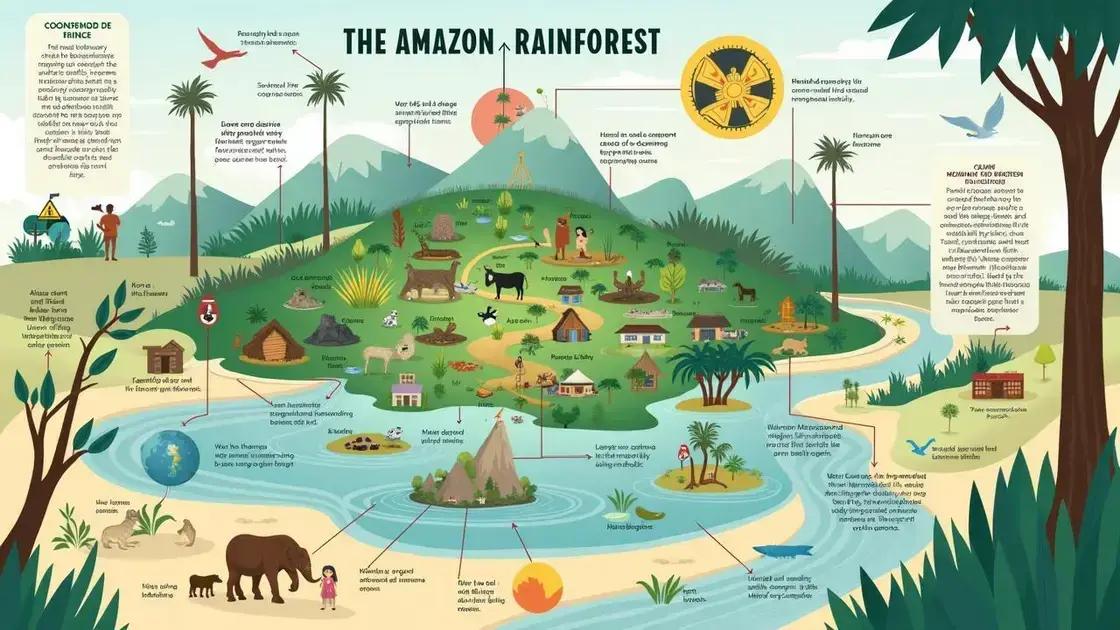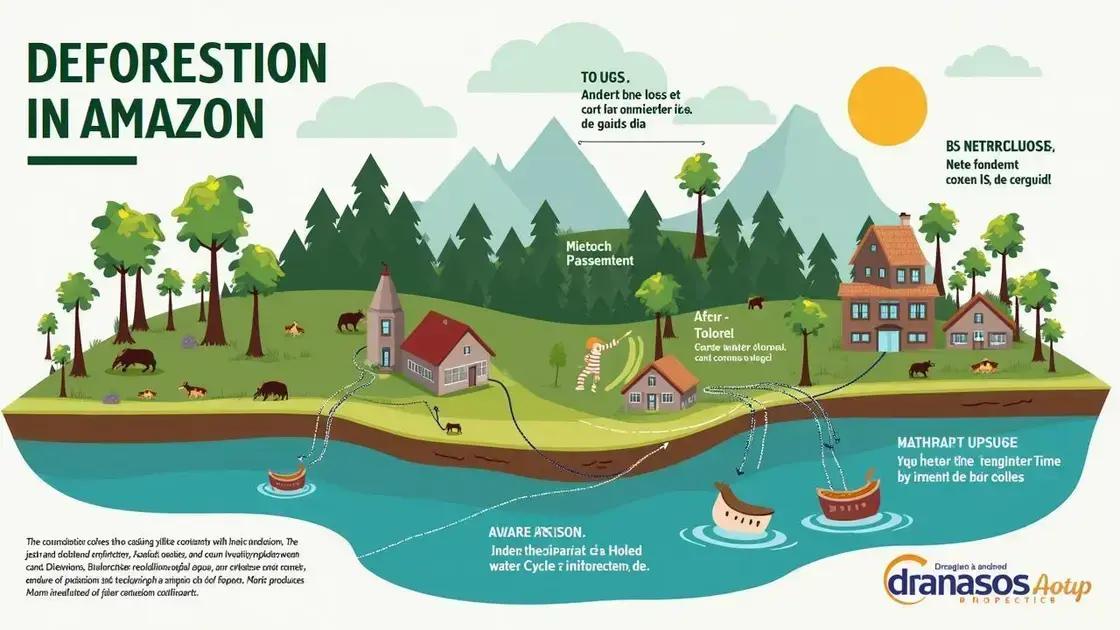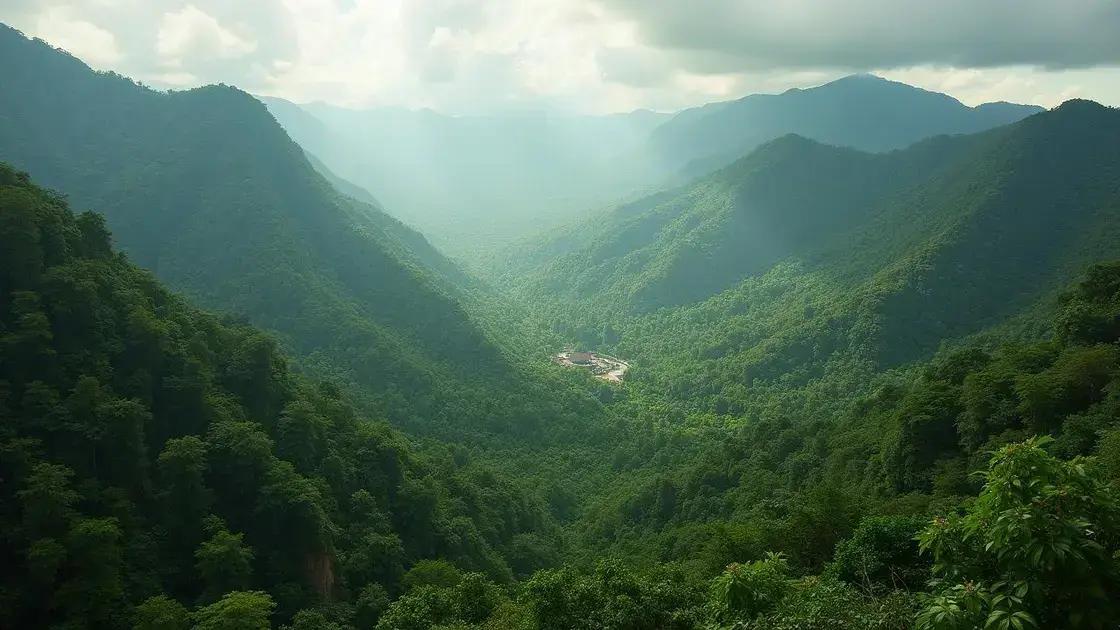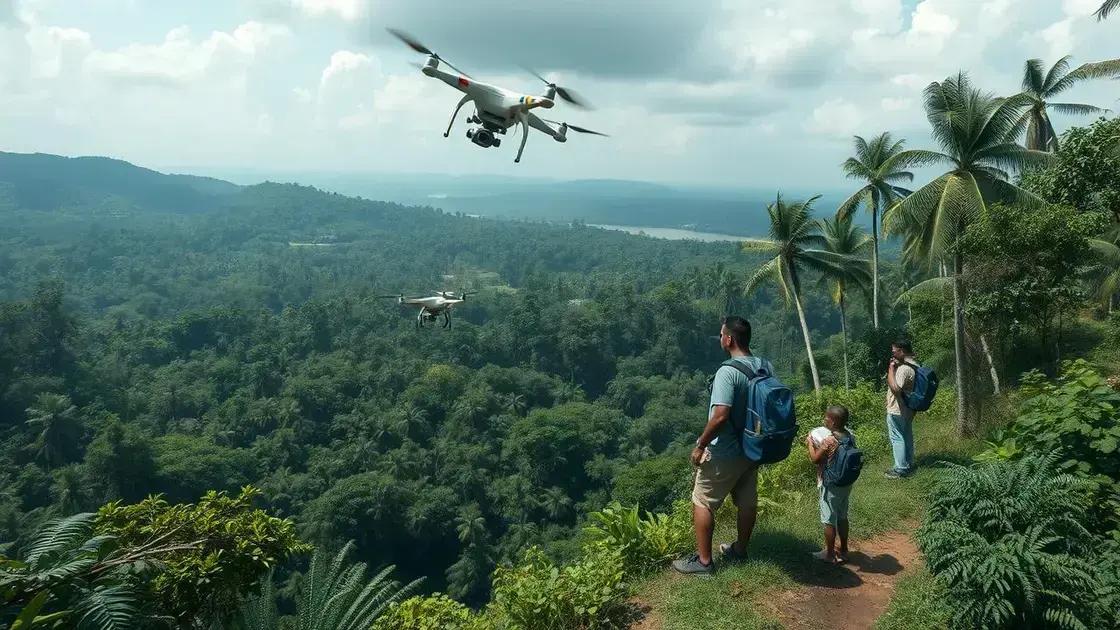Amazonic Power refers to the ecological significance of the Amazon rainforest, crucial for carbon absorption, climate regulation, and biodiversity preservation, making it vital for global health and environmental balance.
Understanding the complex dynamics of Amazonic Power offers a glimpse into its substantial impact on global ecology and culture. What do experts say about Amazonic Power? This unique resource is not just about energy; it encompasses biodiversity, conservation, and the livelihoods of indigenous peoples. In this blog post, we will delve into expert opinions regarding Amazonic Power, its ecological significance, and its potential for the future.
Understanding Amazonic Power

Understanding Amazonic Power involves recognizing the intricate balance of ecological processes within the Amazon rainforest and the immense benefits it provides. This region is often referred to as the “lungs of the Earth” due to its capacity for producing oxygen and absorbing carbon dioxide.
The Role of Biodiversity
The Amazon rainforest is home to an astonishing variety of species, many of which are found nowhere else on the planet. This biodiversity is crucial for the stability of local ecosystems and contributes to global ecological health. Experts emphasize that preserving this biodiversity is key to maintaining the Amazonic Power.
Carbon Sequestration
One of the most vital functions of Amazonic Power is carbon sequestration. The vast trees and vegetation in the Amazon absorb significant amounts of carbon dioxide from the atmosphere, helping to combat climate change. According to environmental scientists, protecting these forests is critical to our efforts in managing global warming.
Indigenous Knowledge and Practices
Indigenous communities have lived in harmony with the Amazon for centuries. Their traditional knowledge about sustainable practices is invaluable. Experts highlight that integrating this wisdom into modern conservation efforts can enhance the efficacy of preserving Amazonic Power.
The Interconnectedness of Ecosystems
Understanding Amazonic Power also means recognizing how the interconnected ecosystems of the Amazon impact not just local areas but also global climates. Water cycles, weather patterns, and even agriculture in distant places are influenced by the health of the Amazon. Research indicates a direct connection between deforestation in the Amazon and adverse weather patterns in other regions.
Expert Views on Its Ecological Impact

Experts are deeply concerned about the ecological impact of Amazonic Power. Many studies indicate that the Amazon rainforest plays a crucial role in regulating global climate and weather patterns.
Deforestation and Biodiversity Loss
One of the most pressing issues is deforestation, primarily driven by agriculture and logging. Research shows that as trees are cut down, the rich biodiversity of the Amazon is also rapidly declining. Many species of plants and animals face extinction due to habitat loss.
Water Cycle Disruption
The health of the Amazon impacts the global water cycle. Experts have noted that a decrease in forest cover can lead to reduced rainfall, impacting agriculture and water availability in distant regions. This disruption not only affects local ecosystems but can also impact rates of evaporation and precipitation globally.
Carbon Emissions and Climate Change
As the Amazon is destroyed, significant amounts of stored carbon are released into the atmosphere, exacerbating climate change. Experts warn that this cycle of deforestation and resulting emissions can generate severe long-term effects on the planet’s climate stability.
Community and Indigenous Impact
Many indigenous communities rely on the Amazon for their livelihoods. These communities have rich knowledge about sustainable practices that can protect the ecosystem. Environmental scientists emphasize that their voices must be included in discussions about conservation and management to ensure effective solutions are found.
Global Significance of Amazonic Power

The global significance of Amazonic Power cannot be overstated. This vital ecosystem contributes to the health of our planet in numerous ways. Understanding its importance helps emphasize the need for conservation.
Carbon Regulation
One of the key roles of the Amazon is in carbon regulation. As a large carbon sink, it absorbs vast amounts of carbon dioxide. Experts stress that maintaining this function is essential for mitigating climate change globally.
Climate Regulation
The Amazon rainforest also plays a significant role in regulating weather patterns. Research indicates that the moisture released by its trees affects rainfall over much of the Americas. Any loss of forest leads to altered weather, impacting agriculture and water supply far beyond its borders.
Biodiversity as a Global Resource
Home to an incredible variety of species, the Amazon boasts biodiversity that is crucial for global health. Scientists argue that many medical breakthroughs have origins in the unique plants found here. Preserving this biodiversity ensures future generations can benefit from nature’s resources.
Impact on Indigenous Cultures
The Amazon is not just an ecological treasure; it is also culturally significant. Many indigenous communities live in harmony with this ecosystem. Their knowledge is crucial for sustainable management. Experts highlight that supporting these communities is vital to the broader health of the Amazon and its ecosystems.
Future Trends in Amazonic Power Research

Future trends in Amazonic Power research are promising as scientists and conservationists focus on understanding and protecting this vital ecosystem. Advanced technologies and collaborative approaches are expected to transform how we analyze and maintain the Amazon.
Utilizing Technology
Emerging technologies, like satellite monitoring and drones, are becoming essential tools for Amazonic Power research. Experts predict that these technologies will allow for real-time data collection on forest health, biodiversity, and carbon levels, improving conservation efforts.
Focus on Climate Change Mitigation
The role of the Amazon in climate change is becoming a primary area of focus. Many researchers aim to better understand how maintaining Amazonic Power can help in global climate mitigation strategies. Studies are increasingly highlighting its potential to absorb carbon dioxide and combat the effects of climate change.
Community-Driven Research
Collaborating with local communities is a growing trend in Amazonic research. Experts emphasize the importance of indigenous knowledge and practices in managing the rainforest sustainably. Future research will increasingly seek to integrate these perspectives to enhance conservation strategies.
Holistic Ecosystem Approaches
Future studies are expected to adopt a more holistic ecosystem approach. Understanding the interconnectedness of species and habitats is crucial. Research initiatives will aim to explore how different elements within the Amazon’s ecosystem influence each other, aiding in better management and conservation efforts.
In conclusion, understanding the importance of Amazonic Power
is essential for the health of our planet. This vast and intricate ecosystem plays a critical role in carbon regulation, climate stability, and biodiversity preservation.
As experts highlight, the need for comprehensive research and conservation efforts is more urgent than ever. By utilizing advanced technologies, fostering community-driven approaches, and adopting holistic ecosystem perspectives, we can ensure the sustainable management of the Amazon.
Future research trends point towards a collaborative effort that includes local communities and leverages innovative solutions. Ultimately, protecting Amazonic Power means safeguarding not only the rainforest itself but also the future of our global environment.
FAQ – Frequently Asked Questions about Amazonic Power
What is Amazonic Power?
Amazonic Power refers to the ecological and environmental significance of the Amazon rainforest, including its role in carbon absorption and biodiversity.
Why is Amazonic Power important for climate regulation?
The Amazon rainforest acts as a vital carbon sink, absorbing carbon dioxide and helping to mitigate climate change at a global level.
How does deforestation affect Amazonic Power?
Deforestation leads to habitat loss, reduced biodiversity, and increased carbon emissions, which all negatively impact the Earth’s climate and ecology.
What are the future trends in Amazonic Power research?
Future trends include utilizing technology for real-time monitoring, adopting community-driven approaches, and focusing on holistic ecosystem management.
How can indigenous knowledge contribute to the conservation of the Amazon?
Indigenous knowledge provides valuable insights into sustainable practices that can enhance conservation efforts and ensure the health of the ecosystem.
What role do scientists play in the research of Amazonic Power?
Scientists conduct studies to understand the ecological functions of the Amazon, inform conservation strategies, and raise awareness of its importance globally.












